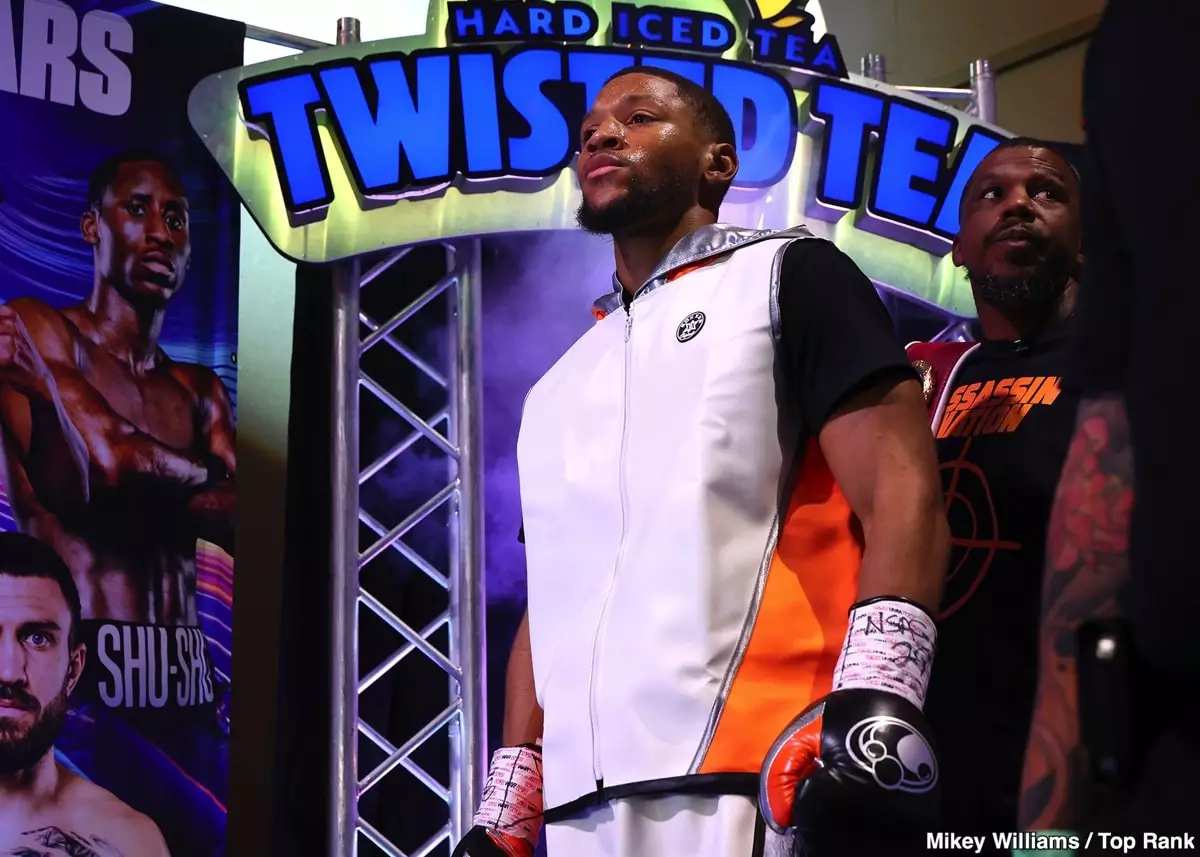In the world of boxing, timing and negotiation power are crucial, especially when a championship unification bout is on the line. The recent fallout from potential negotiations between WBO welterweight champion Brian Norman Jr. and IBF champ Jaron “Boots” Ennis has stirred up controversy in the boxing community. At the heart of the debacle is a $500,000 impasse that some argue could have been resolved with better strategic foresight from both parties. With the stakes high, the fallout reveals not only the intricacies of negotiation but also the perceptions surrounding the fighters involved.
Financial Expectations and Reality
The crux of the disagreement seems to lie in the financial expectations set by both teams. Norman Jr. reportedly turned down an offer of $1.7 million from promoter Eddie Hearn, seeking $2.2 million to cover his obligations to his promoter, Bob Arum, as well as other expenses. Meanwhile, Ennis’s camp seemed unwilling to budge on the offer. In boxing, each fighter’s financial security is a vital part of their decision-making process, and it’s understandable that Norman Jr. would want to maximize his earnings. However, one must question whether his demands were justified for a fighter still establishing his reputation on the grand stage.
The situation illustrates a common dilemma in boxing: fighters often seek to enhance their worth based on previous performances, yet may struggle to recognize the volatile nature of the sport’s pay structure. For Ennis, the $1.7 million was a substantial amount, especially for a proposed fight in his own backyard. He was at a point where winning a high-profile unification bout could have propelled him into a different financial echelon.
Location, Location, Location
Another critical component of this breakdown is the geographical location of the proposed match. Norman Jr.’s preference for a neutral location in Las Vegas was met with resistance from Ennis’s camp, who insisted on the Wells Fargo Center in Philadelphia. This raises an intriguing point in promotional logistics: does fighting at home significantly enhance a fighter’s chances of winning? While there’s no denying it might provide a psychological edge, the insistence on hometown advantage can also be regarded as a strategic blunder if it risks derailing a marquee matchup.
Some fans speculate that Team Ennis may have been reluctant to engage with Norman Jr. based on perceived challenges he would bring to the ring, likening the situation to concerns about fighting other emerging talents like Vergil Ortiz Jr. From a strategy standpoint, trying to secure an easily winnable fight may seem prudent, but it risks stigmatizing a fighter as someone unwilling to face formidable opponents.
The Role of Promoters
Promoters play a significant role in shaping the careers of fighters. In this case, the hesitance from Hearn’s side to increase the offer for Norman Jr. can be seen as a lack of commitment to develop Ennis into a true star. For Hearn, investing the additional half-million could have paid off handsomely if the fight resulted in a high-profile win for Boots. However, promoters often aim to minimize their financial risks—this is not surprising as their profitability is inextricably linked to the performance of their fighters.
This oversight on Hearn’s part could alienate a promising fighter like Ennis from lucrative opportunities, pushing him to defend his title against mandatory challengers like Karen Chukhadzhian. The fight in question ultimately failed to impress, leaving many fans wondering what might have been if the ambitious unification bout had occurred instead.
Legacy and Reputation
Ultimately, the failed negotiation has much to do with reputation and the legacy each fighter wishes to achieve. Bozy Ennis, father and trainer of Jaron, took aim at Norman Jr.’s previous earnings as a way to undermine their request for more money. Yet this argument fell flat, as comparing what Norman Jr. earned in his interim title fight versus the potential earnings for a unification bout lacks contextual relevance. These kinds of tactics can weaken one’s position, suggesting a desperate grasp at justification rather than an honest reflection on the business aspects of boxing.
The missed opportunity for a unification fight not only impacts the fighters involved but also the welterweight division as a whole. Without these high-stakes matchups, the excitement and narrative threads that hold boxing together are weakened, leaving fans yearning for a drama that could have unfolded. As the dust settles, both Norman Jr. and Ennis will have to grapple with the consequences of their decisions and the paths they choose moving forward, reminding us that in boxing, every choice comes with a cost.

